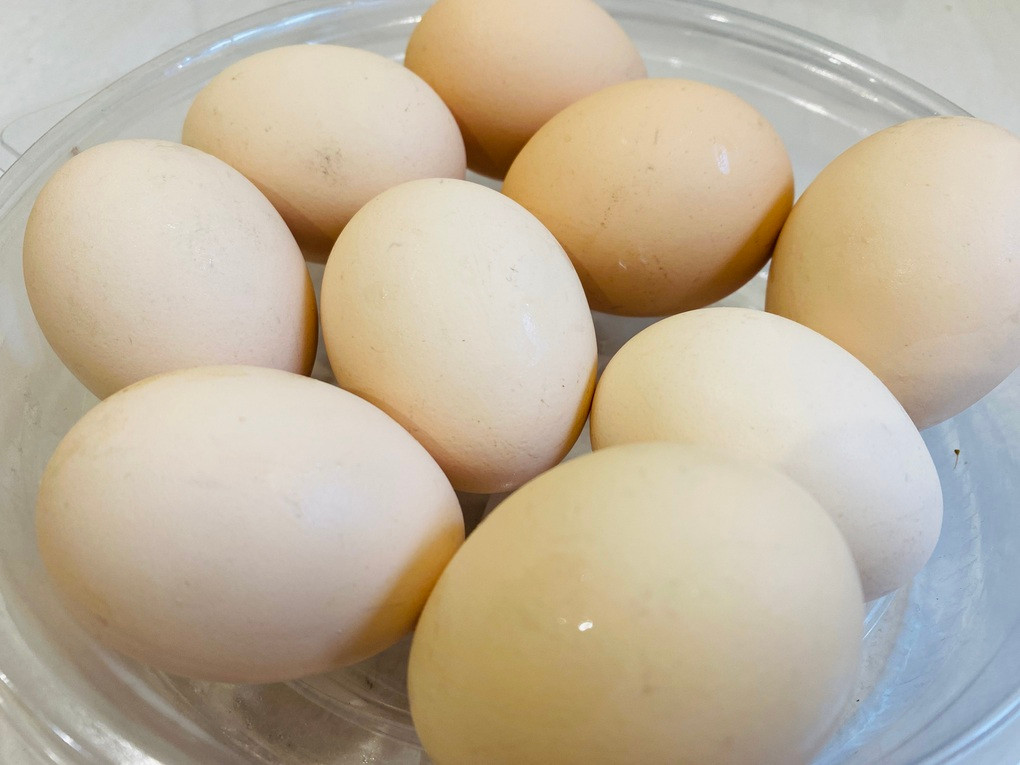Does eating lots of eggs lead to gallstones?
One of the causes of gallstones is bile containing too much cholesterol. Egg yolks contain a lot of cholesterol, so does eating a lot of them lead to the risk of gallstones?
Your gallbladder is an organ that aids in digestion. Located below your liver, it is a small sac that stores bile, bilirubin, bile salts, fats, proteins, and cholesterol. After your liver has filtered out any toxins you may have ingested, they are transported and stored in your gallbladder.
According toMedical News TodayThe gallbladder produces bile that helps the body digest fats. Consuming a lot of fat, especially saturated and trans fats, can put additional stress on this process.
Researchers have found that people who consume red meat, processed meat, and eggs as part of an overall unhealthy diet have a higher risk of developing gallstones.

Eating certain foods can disrupt gallbladder function, even if you're healthy and have never had any gallbladder problems.
Egg yolks are particularly high in cholesterol. One large egg yolk contains 213 mg, enough cholesterol to make it a point to limit your cholesterol intake for the rest of the day. If you are a healthy adult with no cholesterol problems, you can safely consume about 300 mg of cholesterol.
According toMayo Clinic, most people with high cholesterol are usually limited to about 200mg of cholesterol. Cholesterol can seriously affect your gallbladder if you consume too much.
Because your gallbladder stores cholesterol, it may not be able to break down too much cholesterol. The excess cholesterol that is not broken down will begin to harden, causing gallstones to form.
According to Dr. Tran Xuan Phuc - General Surgery Department, Thu Duc Regional General Hospital (HCMC), eggs are a nutritious food, easy to eat and easy to prepare. However, egg yolks contain a lot of cholesterol and consuming too many eggs in the diet increases the risk of stone formation.
The case of a 23-year-old man (An Giang) is an example. The patient accidentally discovered he had gallstones during a military service examination.
Dr. Phuc said that the abdominal ultrasound results showed that the patient had many gallstones in the gallbladder, the largest one measuring 2.5x1.5cm, almost the size of a small quail egg. However, the patient did not have any symptoms, such as right lower quadrant abdominal pain, jaundice or loss of appetite, nor did he have any accompanying metabolic diseases.
Exploring the patient's diet, the doctor himself was shocked to learn that the patient ate eggs every day and ate a lot, for a long time. Therefore, the expert believed that the cause of his gallbladder stones was due to eating too many eggs.
How many eggs should I eat a week?
According to the National Institute of Nutrition (Ministry of Health), children after 6 months and adults can eat eggs 3-4 times a week. People with high blood pressure or high cholesterol can still eat eggs. The reason is because lecithin in eggs has the effect of regulating cholesterol levels, preventing cholesterol accumulation, promoting the process of cholesterol separation and eliminating the resulting components from the body.
Specifically:
- Children 6-7 months old, each meal eat 1/2 egg yolk.
- Children from 8-9 months old, each meal eat 1 chicken egg yolk or 4 quail eggs.
- Children 10-12 months old should be fed both the yolk and the white, one egg per meal.
- Children 1-2 years old eat 3-4 fruits/week.
- Adults should only eat 3 eggs a week. People with high blood pressure or high cholesterol can still eat eggs because they do not increase blood pressure and cholesterol. However, they should only eat 1-2 eggs a week.
Moderate egg consumption is safe for most healthy people, but experts advise people with heart disease or diabetes to talk to their doctor about whether eggs could be a healthy addition to their diet.
Nutritional value of eggs
Eggs are a food with exceptionally high nutritional value. Eggs contain enough protein, fat, vitamins, minerals, and some digestive enzymes. The ratio of nutrients in eggs is very appropriate and balanced.
Egg protein is a very good source of essential amino acids that play many important roles in the body, especially for the development of both weight and height of children.
Eggs have a very valuable source of fat, lecithin. Lecithin is often found in small amounts in other foods. It participates in the composition of cells and body fluids, especially brain tissue.
Eggs are also a good source of vitamins and minerals. Minerals such as iron, zinc, copper, manganese, iodine… are concentrated mostly in the yolk.
Both the yolk and the egg white contain biotin, which is vitamin B8, which participates in the body's energy production cycle.
According to Master, Doctor Hoang Minh Duc, Department of General Surgery, Tuyen Quang Provincial General Hospital, gallstones are formed due to the following reasons:
- Bile contains too much cholesterol
Bile aids in digestion and also dissolves cholesterol. However, gallstones can form if excess cholesterol is not completely dissolved.
- Bile contains too much bilirubin
Conditions such as cirrhosis, infections, and lipid disorders can cause the liver to produce too much bilirubin, leading to the formation of gallstones.
- Bile concentrates, forming gallstones.



